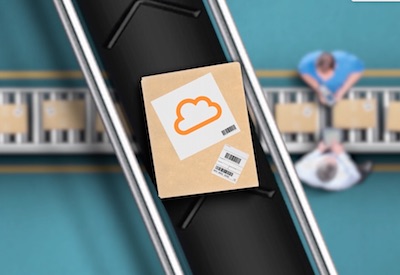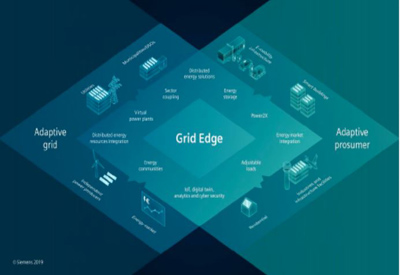Cloud Deployed ERP for Distributors

Oct 31, 2019
In the face of growing competition and a challenging business climate, many distributors are looking for ways to reduce costs, streamline operations, and improve the bottom line. Implementing enterprise resource planning (ERP) software is a proven solution for running a business efficiently and effectively. Yet, a large percentage of distributors have held back from implementing an ERP system due to high initial costs, long implementation times, and competing demands for time and resources.
This paper describes how the Software as a Service (SaaS) model — more commonly known as “the cloud” — delivers financial, implementation, and operational benefits to distributors of all sizes. It also details how cloud deployed Epicor ERP, a comprehensive ERP system deployed in the cloud, helps distributors leverage the cloud to punch above their weight. With cloud deployed Epicor ERP, distributors now have the opportunity to implement an ERP solution that can help transform their operations and their business.
The case for cloud deployed ERP
As distributors attempt to keep pace with escalating competition and a demanding business environment, most realize that an ERP system can help streamline their business processes, meet trading partner requirements, and improve operational efficiency. However, too many businesses today operate without an ERP system. High initial costs (including software, hardware and supporting infrastructure), lengthy and complex implementation projects, and the staffing necessary to implement and maintain ERP systems all become barriers in implementing. These practical concerns are key factors driving the increasing adoption of cloud solutions within many businesses.
With traditional on-premises software deployments, customers purchase, install, manage, and maintain the software as well as supporting infrastructure, such as hardware and networks, in house. In a cloud deployment, the software vendor hosts, manages and provides customers access to the software as a service over the Internet. Rather than pay for the software up front out of their capital budgets, cloud customers licence it on a subscription basis, usually by per user, per month or a number of transactions. On-going maintenance, upgrades, and support for the software and infrastructure are all the responsibility of the software vendor and are typically included in the subscription fee.
Benefits of cloud deployment
While this paper has briefly mentioned some of the benefits of the SaaS model, the model offers a wide range of financial and operational benefits for distributors, including:
• low initial and predictable on-going costs
• faster implementations and time to value
• reduced cost of ownership
• greater reliability
• improved support
• reduced IT complexity
• improved business focus
Low initial and predictable ongoing costs
Because cloud solutions are provided on a subscription basis, companies with limited budgets can substantially reduce their initial capital costs of investing in an ERP system. Instead, the software becomes a monthly operational expense that allows customers to spread the cost over time in a pay-as-you-go manner. In addition, most cloud vendors provide assurances that customers will not face large fee increases to continue using the solution once the initial term expires by capping fee increases.
Faster implementations and time to value
As cloud solutions are hosted and managed by the vendor, customers have no hardware to set up or software to install. The implementation is solely focused on configuring the system and, if necessary, importing data. Advanced cloud-based ERP systems come preconfigured based on best practices to further simplify and expedite the implementation process. This translates into faster, less complex implementation projects. Because implementation is rapid and customers invest little up-front capital, but receive the benefits from the system as soon as they go live, customers achieve a faster return on their investment.
Reduced cost of ownership
With cloud-based solutions, customers pay only for users that actually use the software. Businesses don’t need to invest in all the peripheral resources and technology to support an on-premise deployment. If the needs of the business expand over time, the customer simply adds users at a pre-specified cost without worrying about investing in additional resources (e.g., hardware). In addition, with a shared, multi-tenant model, vendors can pass along lower costs due to the economies of scale achieved through the use of a shared data centre, network, and management services.
Greater reliability
SaaS vendors typically offer reliability that exceeds that provided by the IT departments within most businesses. Due to the economies of scale associated with cloud solutions, vendors can make significantly greater investments in skilled staff and technology than an individual company. These investments go towards ensuring performance, reliability, and security. In addition, most cloud vendors offer service level agreements that guarantee uptime, typically 99.5%, assuring customers of system availability.
Improved support
When a customer reports a problem with an on-premise solution, that problem could be related to the hardware at the customer site, interactions with other software, the network or other components that the remote support site has no visibility into, making troubleshooting difficult and time consuming. However, in a cloud environment, the vendor’s development and support teams control the entire environment, which gives them a high level of visibility and enables better, faster service.
Reduced IT complexity
The cloud model transfers the burden of managing and keeping the system up to date and running from the customer to the software vendor. The software vendor takes responsibility for maintaining the infrastructure, including operating systems, databases, application servers, web servers, storage, and system backup. Further, cloud deployment eliminates the need for customers to upgrade their application software to the latest release or update outdated infrastructure (including hardware) to support major software upgrades. The software vendor takes responsibility for all upgrades, ensuring that the system is always running on up-to-date hardware and the latest software version.
Improved business focus
Finally, one of the most important benefits of cloud deployment is that it frees the customer from the responsibility of maintaining and managing the infrastructure and software associated with ERP systems. Instead they are able to focus on and devote their time, staff, and resources on their core business and new strategic opportunities.
Cloud deployed Epicor ERP
Epicor ERP is a comprehensive ERP system deployed in the cloud. It brings together the broad range of functionality that distributors require into one integrated solution. With its ability to manage quote to cash and everything in between, Epicor ERP eliminates the need for separate applications, spreadsheets and workarounds. It supports the breadth of requirements necessary to become a best-in-class distributor (e.g., multiple units of measure, lot and serial tracking, landed cost, cross-dock, wave picking, and etc.). Further, Epicor ERP is flexible enough to support the variety of accounting, costing, and sales kitting/light assembly processes common in distribution.
Epicor has provided software to thousands of distributors of all sizes over the years. Experience matters when it comes to delivering a product or service that meets the needs of an industry and the right software solution can help you transform your business and operations. Epicor ERP is such a solution—providing broad functionality, specific to the needs of small distributors, priced affordably, and delivered in a manner that minimizes complexity. Contact us to learn more about cloud deployed Epicor ERP and how it can help distributors leverage cloud technology to punch above their weight.
Image source: Epicor











